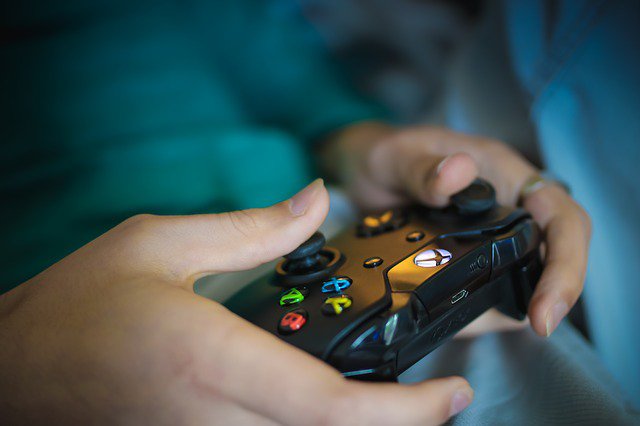New diagnosis
The World Health Organisation has recently incorporated ‘gaming disorder’ into the International Classification of Diseases, and in the UK those diagnosed will be entitled to treatment from the NHS. This change is in response to an increase in excessive gaming, with various knock-on effects including family breakdown. WHO has described gaming disorder as ‘impaired control over gaming, increasing priority given to gaming over other activities to the extent that gaming takes precedence over other interests and daily activities, and continuation or escalation of gaming despite the occurrence of negative consequences.’ This must have been going on for a year or more for a diagnosis, and the disorder will have been serious enough to have severely affected personal or social life, family relationships, education or work, or other important areas of life.
Sufferers will experience withdrawal symptoms if they stop, so it is often preferable to continue doing what they crave. Excessive use often occurs, or gets worse, because you need more and more of the activity to feel the same rush. Video games are specifically designed to be hard enough to keep you engaged but not so hard that people give up – games like Fortnite are very addictive, and others like Red Dead Redemption 2 have vast maps that take days to cover. Therefore, success for a gamer often feels just out of reach.
Parents and carers should ensure that gaming and other screen time forms part of a well-balanced range of activities, and that they don’t displace sleeping, conversation and physical activities. There are things you can look out for in your children or pupils, so as to prevent or recognise when gaming might be becoming a problem, which can include:
- Not sleeping enough and/or playing late into the night
- Restlessness and/or irritability/anger when not allowed to play
- Preoccupation with thoughts of gaming when doing other activities, or losing interest in activities once enjoyed
- Anxiety/depression or not eating properly
- Only socialising via online games, choosing gaming over spending time with family/friends and becoming alienated from them, or lying to parents and playing in secret
- Migraines, eye strain or carpal tunnel syndrome
- Increasingly ignored personal hygiene
- Using games to escape from reality
The first step in overcoming any problem is accepting that it exists. Patience is always important when helping someone recover from excessive gaming. If they are struggling with recovery, create distractions through sports and other strenuous activities, even just a walk, and do talk to them about how they feel and why. For some of the above symptoms, it has been suggested that a period of abstinence is probably necessary.
In the wake of WHO’s classification of gaming disorder, The NHS is opening a treatment centre, there are support groups and therapy, and help and advice from credible healthcare professionals is available; your GP, organisations that specialise in helping people who game excessively, or call the Samaritans free on 116 123.
But don’t panic!
It is easy to see articles on excessive gaming and to worry about our children or pupils’ screen time. However, the vast majority of young people that game do so in a healthy way. Since WHO made gaming disorder an official condition there has been a huge increase in related doctor’s appointments, but a small minority actually meet WHO’s criteria for the disorder. Most players game in a measured way, and it is under control, and just because they get annoyed at you for asking them to stop does not mean there is a health issue.
In most cases, a trip to the GP is unwarranted, and you and your child can work on screen time together. One great thing to do is set up a family agreement for time spent online. Doing this can help to ensure that children – and parents! – are open-minded about changing their online behaviour, and it also helps create consistent routines and develop positive habits. You can put together a list of actions for individual people, or base your agreement upon questions like:
- How long do we currently spend online?
- How long do we think we should be able to spend online?
- What can we do together the rest of the time, offline?
- Are the two things well balanced?
As you create the agreement, reflect on your tone, to ensure it remains positive. It is important that you do consider your own screen time as well as your child’s, and to incorporate not only gaming but all time online, because children mimic parents’ behaviour in many ways as they grow up, and if you spend a lot of time on screens, young people are likely to do the same. If you have set any rules like no screens at meal times, ensure you set a good example.
Experts tend to state that there is no magic number for how many hours per day a child of a certain age should spend with screens. Screen times are of course increasing anyway – in 2007, a typical adolescent would spend 20 minutes a day gaming, however now it's more like 80-150 minutes a day. Spending each day trying to keep count of hours online is very difficult and stressful. Instead, the American Academy of Paediatrics have recommended forming a family media plan, that takes into account various aspects like family values, education and mental health, for the daily lives of all family members. This allows you to set aside time for homework, chores and other activities, and you can find this here: https://www.healthychildren.org/mediauseplan
Because it is difficult to find the right balance, another few are:
- You can decide upon screen-free times in the day, perhaps in the hour before bed, or maybe for part of the evening. This screen-free time could be the same for everyone, and you could do something together in this time, offline. There are also ‘countdowns’ you can use in device settings, to let kids know how much time they have left on their game.
- Talk to your child about other activities they would like to try, including more niche sports or pursuits that they might not have previously considered. You could then take something up together.
- You could have screen-free zones, for example their bedrooms.
- Talk to your child about the game they are playing; what do they want to achieve? Is their priority completing tasks or levels, or socialising with friends? And are they having fun, learning, creating and interacting with others, online and in the physical world? How is their health and wellbeing overall?
- As strict time limits can be tricky due to the type of game, you may need to change the limit to number of quests/tasks/team matches completed.
- Use the games as inspiration for offline activities – if they love baking, sport or adventure games, try to replicate this in real life. Also, some children’s TV channels have their own websites with suggestions of offline activities.
- Play online games together; have fun, ask questions and take an interest.
- If you do want your child to play a lot less, it might be better to make a gradual change; if it is too sudden and too dramatically changed, it may cause shock and upset, and may result in rebellion.
- You could teach your kids to consider games as a reward for homework or chores.
- Persuasive design is the way in which digital companies make apps, games or services engaging and addictive. Turning your child’s game console settings to gray scale can help combat this.
Positives of gaming
Besides social entertainment, some games come with other benefits like:
- Improving decision-making, problem-solving, multitasking and memory skills
- Enhancing attention, concentration and coordination
- Providing education
- Helping the general well-being of a person and/or improving social skills
Many experts also maintain that we should not jump to discourage gaming and other forms of screen time. The American Academy of Paediatrics state that using media thoughtfully can enhance daily life. LSE has brought out a recent report, finding that engaging in digital media activities together such as watching films, playing video games and messaging brings families closer together. The Parenting for a Digital Future report, launched on Safer Internet Day 2018, ‘disputes the popular anxiety that digital media destroys family life by separating family members’. The report finds that online life compliments real life and activities, rather than replacing them; families still do other things together like eating and studying, but also watch TV, play games and learn online together.






